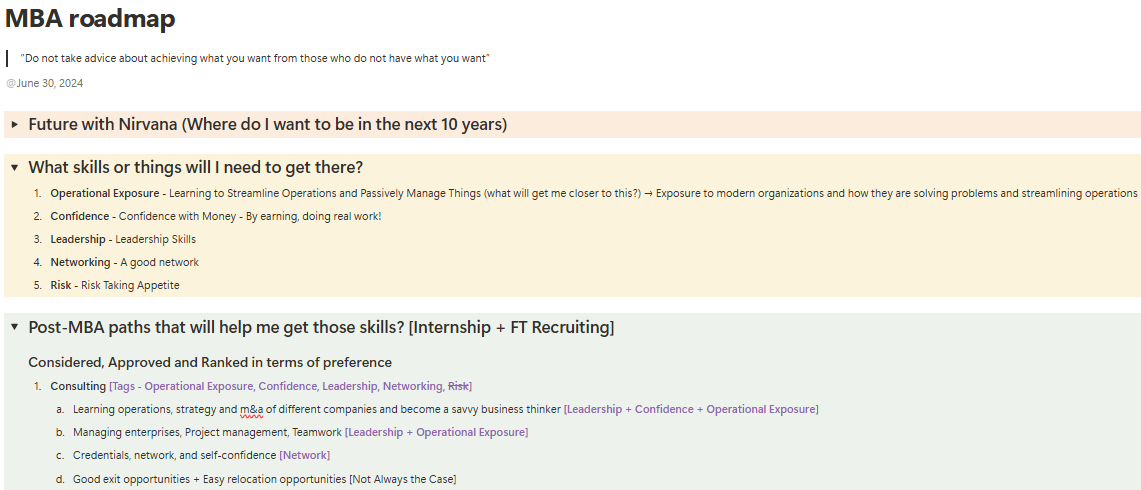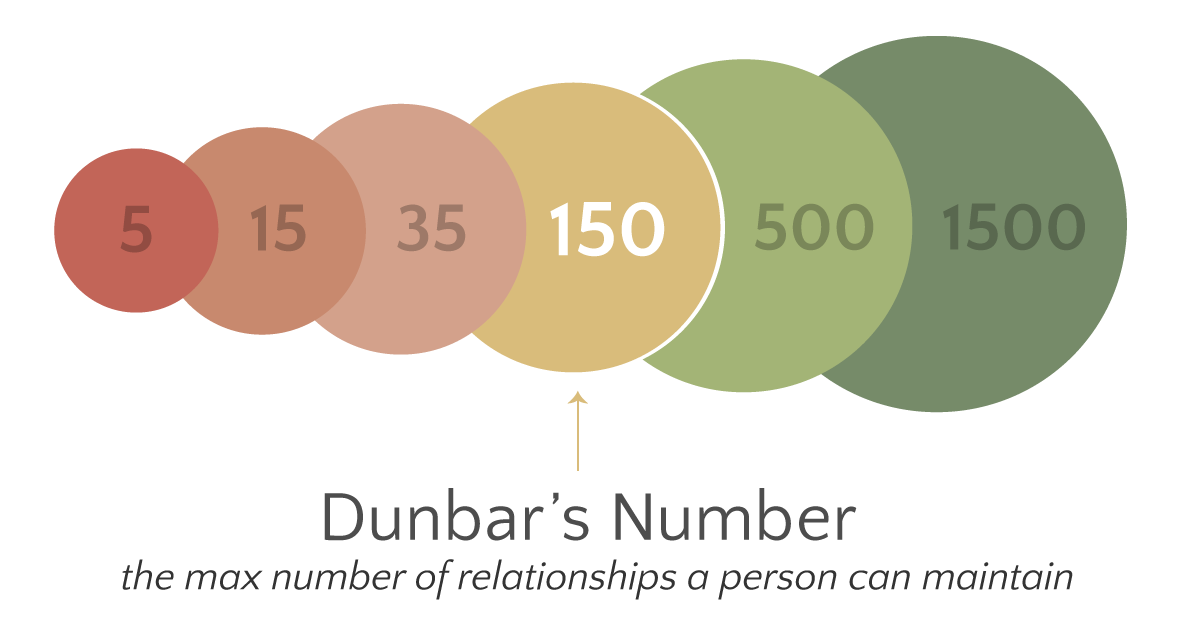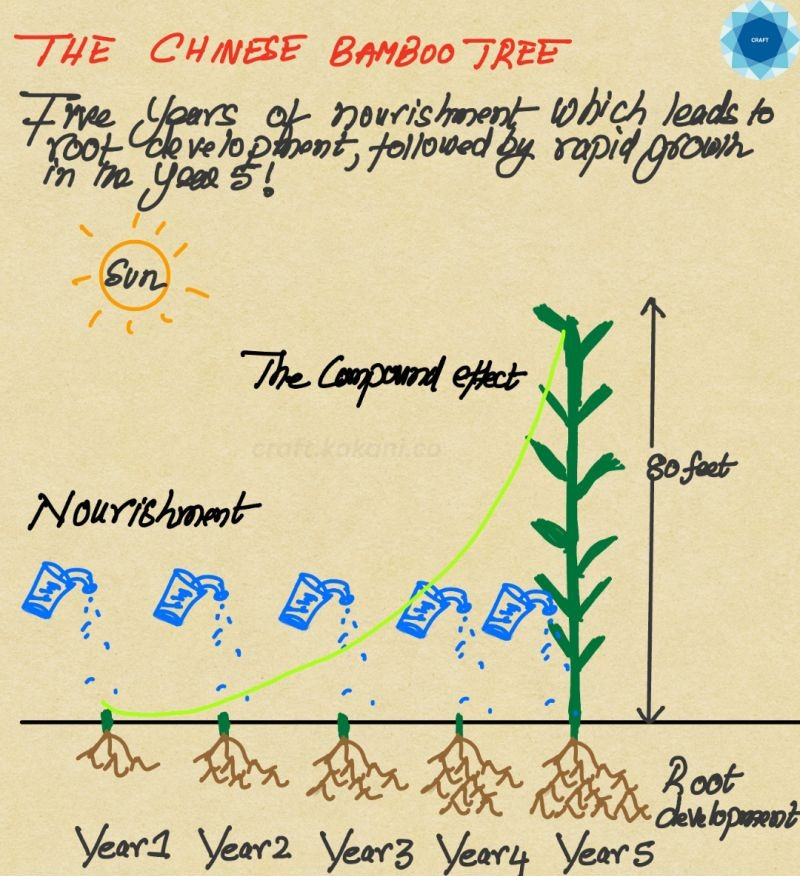Hello chai drinkers, welcome to June’s edition! I hope you’re all doing well.
Around this time last year, I found myself at a crossroads, wondering what I really wanted to do with my life. After weeks of deep thinking, I finally sat down and did a focused journaling exercise, mapping out my ideal career path. It looked something like this:
Fast-forward to today, and I’m living that roadmap. This summer I’m working as a consultant on a due‑diligence project. The hours have been intense, and switching from student life to full‑time work has been an adjustment to say the least. But stumbling upon a goal I once set and living it today fills me with gratitude.
I’ve found such exercises so valuable that every weekend I carve out at least 15 minutes to ask myself the hard questions:
What truly makes me happy?
Where do I really want to be?
What am I doing wrong?
Why do I act the way I do?
If you can set aside just a quarter hour each week to sit with your thoughts, I strongly recommend giving it a try.
“Sweet are the uses of adversity”
I’ve been talking to myself and asking myself questions for as long as I can remember. In 12th grade, during my Econ board exam, I struggled with what should have been an easy elasticity question. I whispered under my breath, “Come on, Kanav, you know this,” and the proctor, convinced I was cheating, shouted at me and moved me to an empty corner of the room, embarassing me in front of all my classmates.
While going into the exam I had been quite underconfident, I was furious at being wrongfully accused. It filled me with rage, and all I could do was show her that I could ace the exam sitting all alone. Thinking back, I find it so foolish. The proctor wasn’t even going to remember my name or find out about my score.
I have this distinct memory of my English professor teaching us an act of Shakespeare’s As You Like It:
I guess in this case, my anger towards the proctor allowed me to use my adversity to its advantage. It goes to show that ideally our motivations should be rooted in the right place, but sometimes, even a petty source of motivation can lead to results.
Weakening Relationships & Dunbar’s Number
As life has gotten busier, I’ve noticed my lack of talent in maintaining social relationships. I am constantly forgetting to reply, forgetting to invite, or even forgetting some people exist at times. All genuine mishaps on my end, were making people feel like I was deliberately distancing myself.
So I tried coming up with a fix. I set up a social directory of all my connections, tracking my last touchpoints, and more as a reminder of the existence of those connections. Despite setting up and automated fancy template, I eventually couldnt keep up with updating it regularly.
Recently though, I heard about something called Dunbar’s number. According to British anthropologist Robin Dunbar,
“there is a ratio between brain sizes and the social group sizes. This ratio limits how much compelxity a social system can handle.”
Basically, his theory imples that people can only truly handle up to 150 relationships properly. Even if there are more than 150, they are usually split like this:
5 loved ones
15 good friends
50 friends
150 meaningful relationships
500 acquaintences.
1500 people you can recognise
This made so much more sense: in the past year, I’ve met so many new people that my social touchpoints have far exceeded Dunbar’s number, rendering me unable to maintain them all.
Think about your own network, chai drinkers. How many genuine social relationships do you have? Is it more than 150?
The Bamboo Effect
Have you ever heard of the Chinese bamboo tree effect? For the first few years, the tree shows no visible growth above ground, even though it’s developing deep roots beneath the soil. Then, after some time, it suddenly shoots up.
If you’re working hard but not seeing results, you’re laying the roots for a strong foundation chai drinkers. Keep pushing!
Cup of wisdom HAI
“Aim to maximise your slope, not your y-intercept” ~ Sam Altman
C Habitual wins AI
People often ask me how I manage to find time for multiple tasks. It’s simple, I reduce the need to think about what to do next. If you’re struggling or overwhelmed by the number of to-dos you have, use a to-do app!
Here are some I’ve tried:
Todoist
Things3
Microsoft ToDo (this one is just ok but a good starter)
FYI—these apps are far more powerful and automated than Apple Notes.
CH Actionable Insight
“Don’t share you problems/plans from a place of seeking reassurance, share them from a place of strength” ~ Mel Robbins
Thank You for Reading!
If you've enjoyed reading this, please subscribe and share with friends who might, too. See you all next week!
I'd love to hear from you — thoughts, health tips, song recommendations, or anything at all.
Reach out to me!
~ Email: kanavghai130@gmail.com









